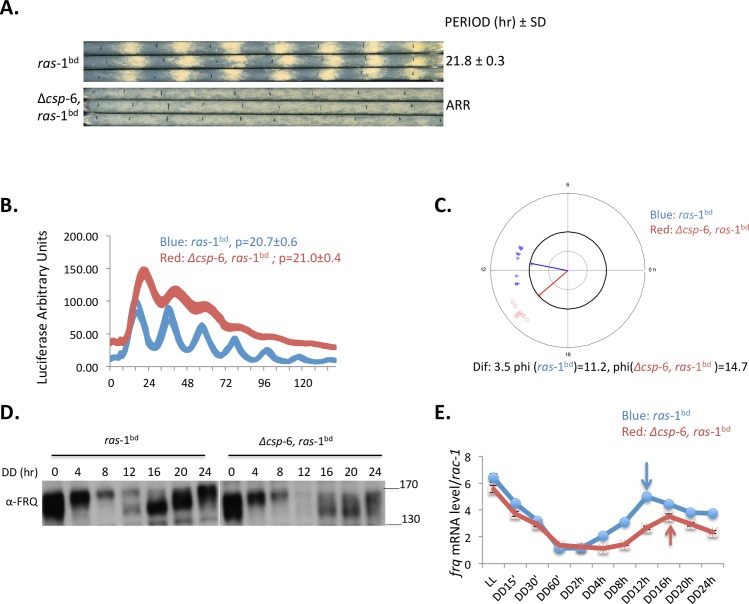Fig 1. Loss of csp-6 abolishes conidiation rhythms and results in a phase delay in frq transcriptional and FRQ translational rhythms.
A: Race tube assays of WT ras-1bd and Δcsp-6, ras-1bd strains. Period is reported in hours ± one standard deviation, ARR is arrhythmic. B: Analyses of luciferase activity rhythms of frq C-box-luc in WT (blue) and Δcsp-6 (red). Strains were grown on race tube medium in a 96 plate under constant light for 48 hrs and then transferred to constant dark. The luciferase signals were captured every hour for 6 days. Three replicates for each strain are shown and ‘p’ stands for period. C: Determination of phase delay in Δcsp-6. Primary time series data from the experiments shown in panel B were analyzed using a Matlab-based program [60]; Dif. corresponds to the phase difference between ras-1bd and Δcsp-6, ras-1bd, and phi reports the average phase of the rhythm in each genetic background. D: FRQ protein remains rhythmic in the Δcsp-6 mutant. Shown is a Western blot of FRQ protein in ras-1bd and Δcsp-6, ras-1bd, the hours in constant darkness are shown above the blots. Protein maker(s) were used as with the molecular weight (KDa) as indicated. E: frq mRNA accumulates with a circadian rhythm in the Δcsp-6 mutant as it does in wild type. frq mRNA expression was assayed by qRT-PCR and normalized to rac-1 in ras-1bd and ras-1bd,Δcsp-6; frq mRNA peaks at DD16 in Δcsp-6 instead of DD12 in WT.

